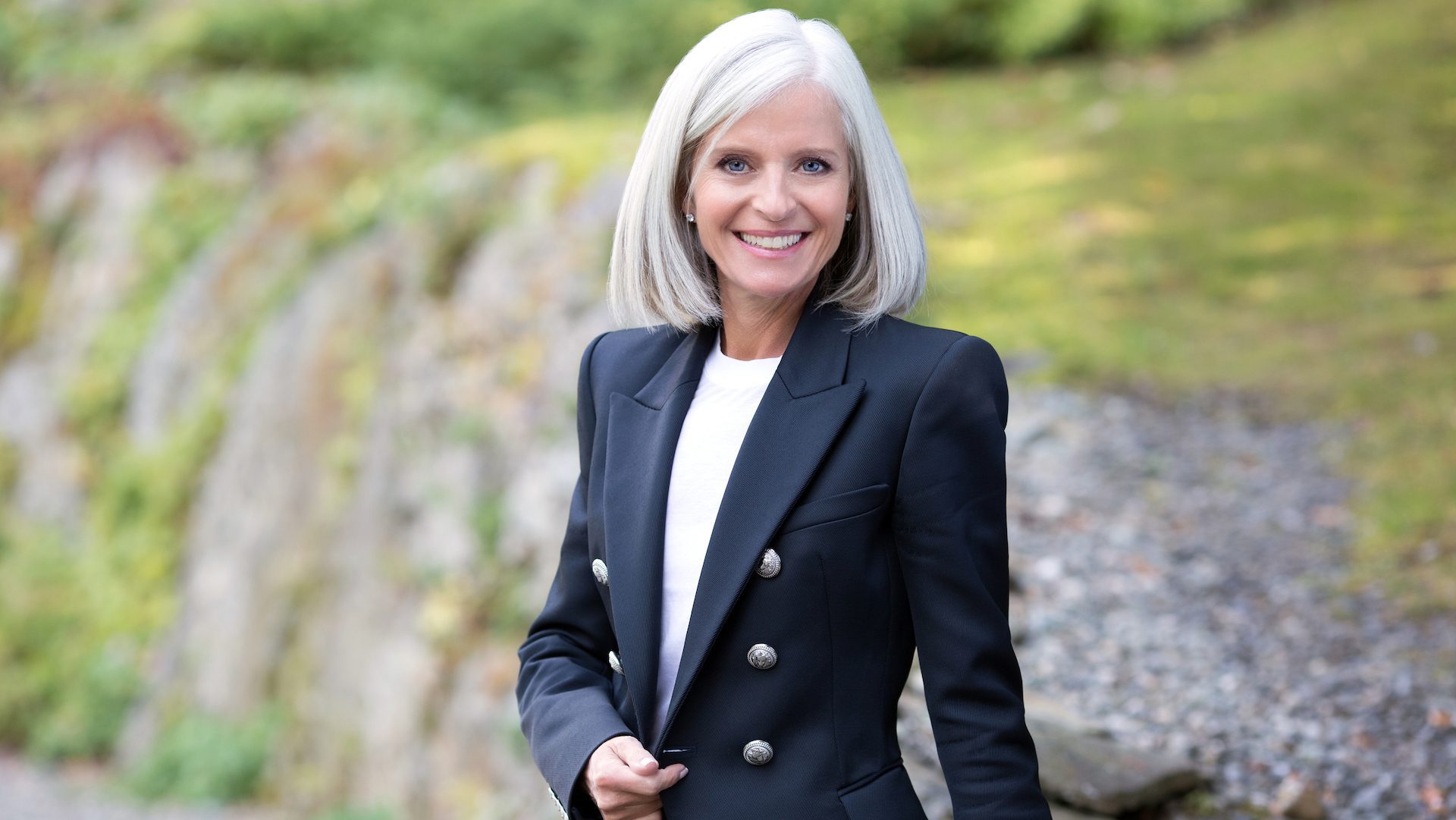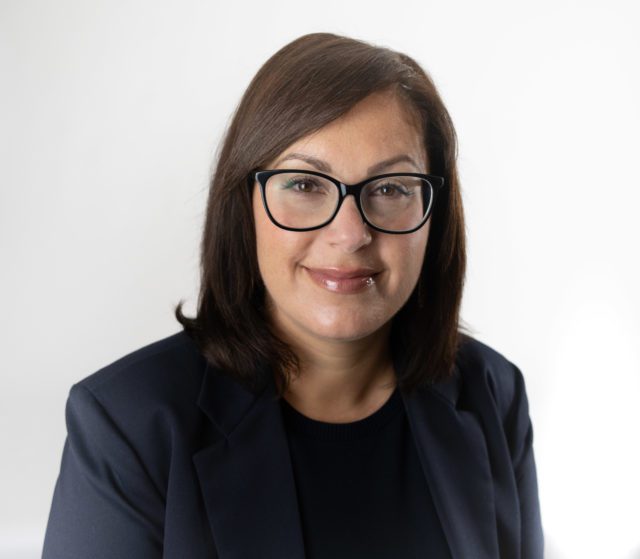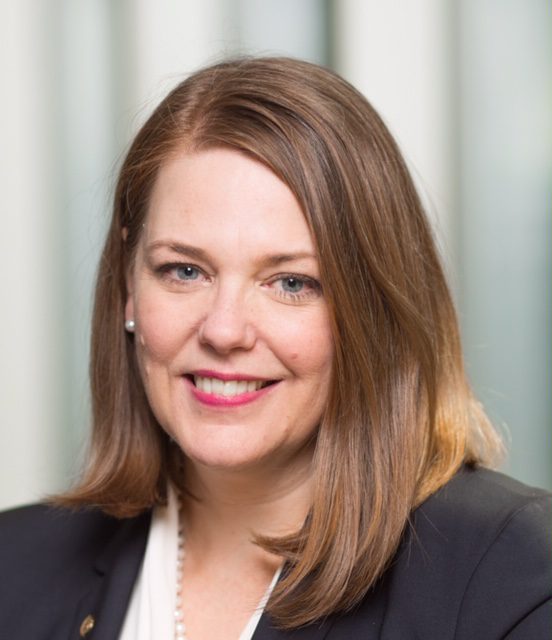“It’s more relevant than ever to talk about female ambition”: Interview with Isabelle Hudon

“Ambition changes the equation”, Isabelle Hudon puts forward at the outset. As the professional world undergoes a watershed moment, this leader is absolutely convinced that female ambition must be part of the equation. A golden opportunity for women, a necessity for organizations facing substantial challenges. But in the wake of a pandemic that has left many women exhausted, will they show up? What impact can these same women have on organizations that are in such need of new talent? A conversation with Isabelle Hudon, President and CEO of the Business Development Bank of Canada and Cofounder of The A Effect.
Isabelle, when we spoke a year ago, during our last big web conference, there was concern about the pandemic’s economic consequences on women. Now, in the news, it’s not so much about financial issues, but about mental health, burnout. What effect could this have on women and organizations?
Now and for years to come, the greatest challenge for companies will be labour shortages. A challenge made worse by the pandemic for many reasons… Some people who weren’t necessarily ready to retire are a little more so after 18 months of pandemic. The decline in immigration also significantly reduces the talent pool. For the younger generation, many are opting for self-employment. Then, there are the women who are choosing to work part-time. Because it’s been exhausting being responsible for everything for the past 18 months… To survive all this, organizations need to redefine their employee experience model to attract and retain more talent. Female talent especially.
In the past 10 years, there has been a lot of talk about the “customer experience”. Personally, I always say that we can’t offer an exemplary customer experience if, as an organization, we’re unable to offer just as good an employee experience. In this, we have some significant challenges. And these challenges create opportunities. Opportunities to renew how we work, to update certain company values… Opportunities for organizations to make way for women, opportunities for women to participate in this shift.
So, despite repercussions that are hard to absorb, you’re staying optimistic about the solutions that emerge from crises like the one we are currently living through…
Yes. I’ve always been very focused on the positive lessons that can be learned from difficult times. I’m not denying how difficult the past 18 months have been. But at the same time, I see a golden opportunity for reinventing ourselves and an ever so important place for ambitious women!
You’ve often talked about the positive influence generated by ambitious women’s presence in organizations. How do you see this taking shape?
Women who own their ambition don’t tiptoe into the professional world. They’re not afraid to speak up and take part in conversations. They make positive changes to the working world. I’m a woman, and I see how we work and think… We have a positive impact on the employees and in the communities where we work. Today, it’s crucial for organizations to think about performance. They must ask themselves: what kind of performance do we want to deliver? Financial performance? Yes, absolutely! But how, for example, do financial performance and environmental performance work together? How can we have a positive influence on our customer base? On community? On technology? Companies must redefine their influence equation. And that opens a big door for people who are not already in the majority around the table. Innovation requires diversity. Because when ideas, opinions, and visions complement each other, that’s when the magic happens.
So, how do we get women “to the table” when we’re sensitive to the fact that they are running out of steam?
I think we should tell them about the opportunities that the health crisis has generated. Tell them we need them to dream up what comes next. Tell them that there are important decisions to make, and that these decisions are focussed on the individual. More conventional leaders will be seeking out this kind of creative thinking.
Organizations that don’t give more thought to the idea of making more room for women won’t survive for long… Just think about the labour shortage. In my opinion, it’s going to become an extremely urgent issue. I think there will be, in the coming months and years, a massive surge where decision-makers will reach out to women, saying: “Now, we need your help.” So, it’s important to be there. To reiterate something Sophie Brochu and I have been saying for 18 months: “Let’s make sure, ladies, that we aren’t “self-excluding” from tables where we want a seat, while others have already been excluding us.” Raise your hand and rise to the challenge.
On the other hand, the system has flaws… We know that women face numerous obstacles that affect their confidence and ambition level. Our research at The A Effect has allowed us to understand that to surface, female ambition needs to be supported by three foundations: solid self-confidence, strong values, and an available, willing support network. So, what would you say to ambitious women who want to take part in this renewal, but are unsure of their ability to rise to the challenge?
The current situation isn’t easy, but it’s very fertile and conducive to change. Once again, women’s exhaustion cannot be denied. This won’t be easy. But organizations have a genuine desire to reinvent themselves, because there is no going back.
So, I would say to women to take it one day at a time, one step at a time, but most importantly, to go in with their own convictions. I’d tell them to go for it by trusting their instincts, their desire to make a difference. Will it be demanding? Yes. But I see a real possibility of coming out of this crisis together and that, I find, gives me energy.
You mention convictions, one of the three foundations for achieving your ambition. We know that values are essential for surpassing ourselves. More than ever, there’s a need to contribute to something with meaning… Speaking of which, you predicted, in an interview last year, that the crisis would trigger “a move from ambition based on individual success to one focussed on the common good”. How can organizations capitalize on this? What can they do to make sure we all benefit from this “collective ambition”?
I think organizations have made a very “human” shift… I think that women will find themselves more naturally at the decision-making table because this aspect is now non-negotiable. It will be interesting for women to contribute to this major process of reflection. The same for people from all kinds of backgrounds. For companies to exist on a human scale, there needs to be better human representativeness.
And how do we ensure that these “human values” are felt at every level of the organization?
It takes a strong leadership team that asserts its values and objectives. Actions must be seen and intentions heard. If we don’t set the example at the top, it will never permeate to the ground level.
When I started at the Business Development Bank of Canada (BDC) in August, it took about 24 hours for all my employees to know that parity was a non-negotiable for me. Since my arrival, I’ve gotten closer to my target: the executive committee is almost at parity. An interesting fact: for the first time in my career, ambitious young men have approached me and told me they felt their careers were in danger… But there you go: I have a goal, and this is how you get results. And besides… to those who worry about their future, I explain that there are plenty of jobs and talent is becoming more scarce, so I can task myself with hiring more young women without firing any of the young men who are already performing well in the organization.
So, a clear action plan, stated objectives, measured outcomes…
Absolutely! Why would anyone be comfortable stating sales targets of 5 billion, but uneasy talking about parity objectives? It’s just as dizzying!
This echoes the third foundation: the support network. Because to see more ambitious women take their place, it takes support from everywhere: as much at home as in organizations.
Women must be supported, yes. Concrete actions can be taken. Leaders must clearly show their true colours on the topic of parity. They must raise women’s profiles and give them a voice, so they can be seen and heard. But – because there is a but – a part of this falls to women themselves. The network is essential, but women must also dare to turn to this network. Asking for help is not a sign of weakness. You’re not bothering anyone by asking for help. I can’t count the number of times in a week that I ask for an opinion, or ask to be challenged on an idea… as women, we want to achieve perfection without bothering anyone. But, that’s not real life.
For the past six years, nearly seven, you’ve been in close contact with all the participants and graduates of The A Effect, who have direct access to you. What changes do you see?
It hasn’t really changed much… The feelings of doubt and insecurity are the same. But one thing is certain, I haven’t sensed less ambition these past two years. And while the word “ambition” is still sometimes disconcerting, we’ve clearly proved to ourselves in recent years that ambitious women no longer fear calling themselves ambitious. I’ll say it again: it’s more relevant than ever to talk about female ambition. Because the world is at a turning point and we’ve got to be ready to take the ball and run with it.
Follow us on Facebook and LinkedIn, and subscribe to our newsletter for all of the latest contents.







